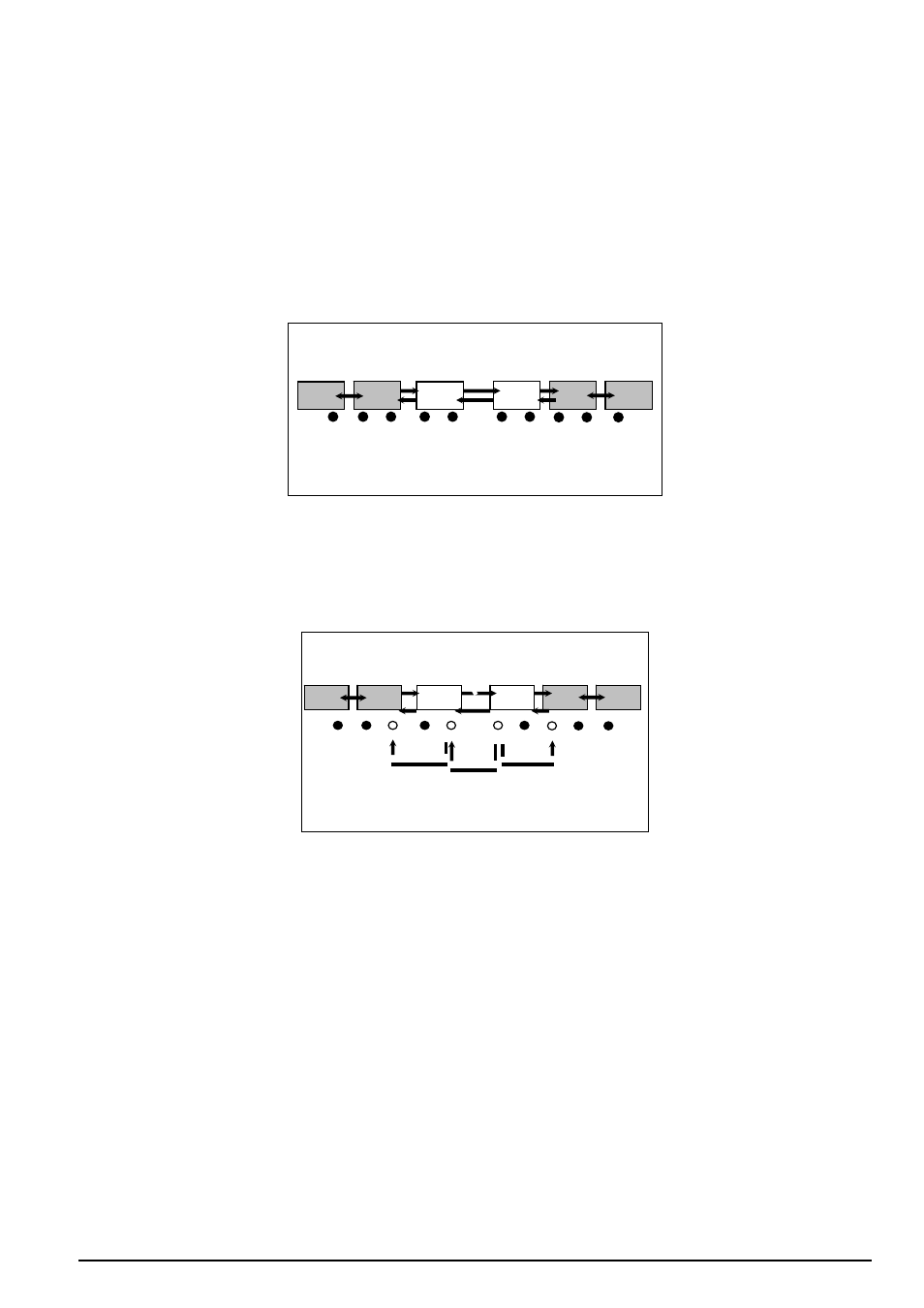2 link loss return (llr), Eturn, Llr) – PLANET FST-81x Series User Manual
Page 17: Notice

17
4.2 Link Loss Return (LLR)
The fiber ports of FST-81x have been designed with an LLR function for troubleshooting a remote connection. LLR works
in conjunction with LLCF.
When LLR is enabled*, the port’s transmitter shuts down when its receiver fails to detect a valid receive link. LLR should
only be enabled on one end of the link and is typically enabled on either the unmanaged or remote device.
The diagram below shows a typical network configuration with a good link status using FST-81x for remote connectivity.
Note that LLR and LLCF are enabled as indicated in the diagram.
Management Switch/Hub Media Media Switch/Hub Management
Station w/SNMP Converter Converter w/SNMP Station
● LED lit = established link ○ LED unlit = no link
If one of the optical conductors is bad (as shown in the diagram box below), the converter with LLR enabled will return a
no-link condition to its link partner. With LLCF also enabled, the no-link condition is carried forward to the switch/hub where
a trap is generated to the management station, and the administrator can then determine the source of the loss.
Management Switch/Hub Media Media Switch/Hub Management
Station w/SNMP Converter Converter w/SNMP Station
● LED lit = established link ○ LED unlit = no link
#
Notice:
1. The FST-81x is shipped with the default LFP (LLCF/LLR) function disable. This feature can also be turned on on-pu
pose. If you are familiar with the network installation and for diagnostic purpose (i.e. check which end is broken), you
can turn it on and the converter will take effect immediately. Otherwise, please remain it in the default position.
2. LLR must NOT be active on both ends of a configuration. If it is, the link can never be established.
LLCF is ON
LLCF is ON
Fiber
Cable
LLCF is ON
LLCF is ON
Port 2
Broken
Fiber
Port 1
Link Loss Carried Forward
Link Loss Carried Forward
Link Loss Returned